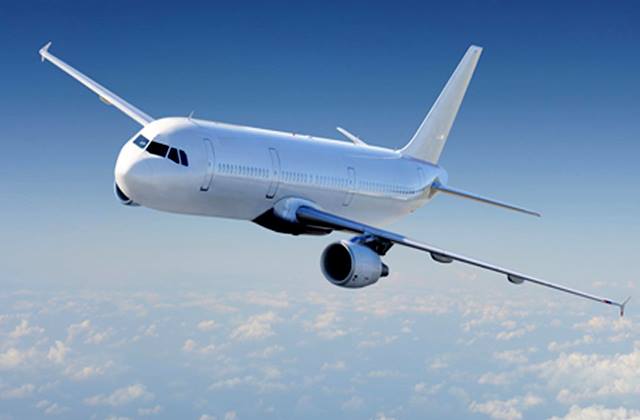Lyric of Armenia’s Aviation or How to Grow Oranges?

Touching statements on rising aviation in Armenia have no ending. To critics of the field specialists, in essence, the “open sky” policy led to monopolization of the field by a Russian company, as well as under impossibility of competition, the field has been deprived of perspectives for development, the authorities contradict, saying that aviation in Armenia records stable development. Recently the then Minister of Economy Karen Chshmarityan stated, that after pursuing the “open sky” policy, new air companies have entered into Armenia market, as well as former providers of the market: Qatar Airways, Egean Airways, Georgian Airways, Iraqi Airways, Al Naser, Mahan Air, Middle East Airways, S7 Airlines, LOT, as a result, as per late December 2015, the number of air companies performing regular flights to Armenia, comprises 21. K.Chshmarityan brought some statistical data as a proof: frequency of flights in 2015 as compared to 2013 grew by 3%, and flow of passengers—by 11%.
However, interestingly, Chshmarityan made a comparison with 2013, bypassing 2014. Meanwhile official statistics states, that passenger transfer has decreased by about 8% in 2015 as compared to 2014.
Anna Chobanyan, Head of the Department of Civil Aviation Policy and Economic Regulation, in an interview with 168.am stated, that registration of new local air carrier is being postponed, as the companies haven’t submitted complete applications yet, and negotiations with foreign companies are still in process, there is an agreement with Qatar Airways, which will operate Yerevan-Doha-Yerevan direction starting from May 15.
These steps are sufficient, aren’t they? As pursuing “open sky” policy, assurances were heard, that price for air tickets will be reduced and new destinations will be added. In response to this question A.Chobanyan stated, that they shouldn’t be satisfied with any indicator and should go forward. According to her, for the time being, pursuant statistical service data, price reduction has been recorded both in 2013 and 2014, data of flight frequency and passenger flow satisfy the government as well on account of the fact, that income in 2014 was the same, and decline depends on a range of factors, and naturally enough, fall has been recorded. Following A.Chobanyan, indicators are sufficient for now, however, they should continue operating to record better indicators.
“At the moment, we have positive indicators, we are on a positive way, we like the process, but we shouldn’t be satisfied with those indictors and go on working. We have entry of air companies, we have fall in tariffs, we have passenger flow, but we continue working,” she said.
A.Chobanyan hesitated to answer to which extent anticipations have been a reality, reasoning that it’s early, “the period from late 2013 to 2016 is rather short in the field of aviation, on account of the fact, that global political shift has been recorded, which requires phase-to-phase implementation, and some factors impact implementation of this. It too early to speak of any results and assessments.”
It’s known that aviation developments have direct impact on tourism, and those, most complaining of field issues, are specialists of tourism themselves. In an interview with 168.am Yeghishe Tanashyan, expert in the field of tourism, stated that, surely, positive shift is observed, in any case, there are directions, in which even special price offers may be found, however, rather high prices are maintained on some primary directions, “For instance, flying to Vienna is very expensive and will still remain the same for a long period. Our main sale direction—Moscow, is rather expensive. Cheap fares mentioned by the government refer only to certain private booking, i.e. some 1-3individuals may succeed in purchasing cheap Moscow-Yerevan tickets, but when we speak of group bookings, which develop tourism, we face the same problem—expensive tickets. That means, these are surface studies.”
In response to the question, whether there’s any hope to reach the level of Georgia, so that our compatriots won’t fly from Tbilisi, Y.Tanashyan joked, “Hope springs eternal in the human breast.” According to him, Georgia faces another issue, and hoping that we would reach Georgia, we should reach at least half of its volumes, which is not realistic, “They have other volumes, other flows, they are in a good position both politically and geographically. Charter or economy class flights aren’t accidental, as there is demand, there is flow.”
Y.Tanashyan anticipated that he doesn’t see any future for Armenia’s new air carrier through Georgian investments, it can’t last long, as it’ll, first and foremost, compete with Aeroflot, and currently not a single company is able compete with it, even other Russian air carriers.
To the question what kind of Armenian company it should be to compete with Aeroflot, Y.Tamashyan replied with a question, “Is it so important that it was an Armenian company? Why everybody thinks that a national carrier should be in Armenia with its 2 million population, where economy is hardly breathing, registering only 2-3% growth? In that case any African tribe should have its private air carrier, currently we’ve become a nation equal to an African tribe. We should have thought of it before, it’s late now. Demand is needed, otherwise you can’t compete. What should that national air carrier do that today others don’t offer? This is rather ambitious desire, which can’t work now, it’s late. The case was different, when we had a national air carrier, we should have done everything for it not to die. Qualitative, cheap and safe service is crucial for our nation. If we import oranges from Africa, does it make sense to exert efforts on growing oranges in Armenia?”
By Gayane Khachatryan

























